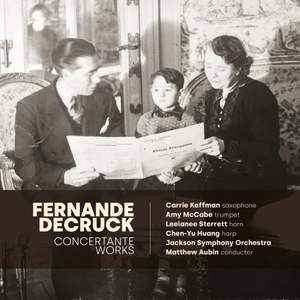There is much, ever so much New Music still, and the day we take it for granted is the day we must renew our love of being here with the music in the present-tense.. So, good readers, I come to you today with a kind of bubbling under excitement of a new disk of chamber works by Steven Ricks, in an album named after one of the compositions,
Assemblage Chamber (New Focus FCR328).
There are Baroque elements, both musically and in instrumentation, at times and the overall impression I get is of a highly singular Neo-Classical Modernism of today. Liners author Michael Hicks instructs us to remember the Baroque as channeled by Ricks not "as a kind of stone-tablet monument to the intellect or dexterity," but rather something "sown with adventure, defiance, mannerism, improvisation, eclecticism and spectacle." The second cautionary assertion is not to "Take 'baroque" and attach a 'neo-' to it" which to Hicks entails imitating "seventeenth or eighteenth century style with a few token dissonances or syncopations" to make it Modern. Well that of course is not to be desired, but what does that have to do with the prefix "neo-," except perhaps as abused in the must facile of Neo attempts? If so, I agree. But then I might wonder, does Stravinsky qualify as Neo-Classical in some of his middle period music? And is it not completely and utterly Stravinsky-esque? Of course. And Hicks is right to caution us away from some mechanical vision of the period as it speaks to us, and truly Steven Ricks gives us nothing at all mechanical here, instead a living, breathing New Music that draws inspiration from the past but then transforms it into his own compositional matrix, just as he does the "Modernist" element as he claims it as his own.
There is nothing borrowed in this music as much as it is explored in transformation. And if "neo" still means "new" then Neo-Classical would only mean New Music in a Classical mode, which may then refer to elements of earluer periods incorporated but not necessarily to imply a servile copyist's vision, for surely Steven Ricks is a visionary as much as anything! I actually agree with Hicks, just not his abandonment of "neo" as a descriptor. But of course what matters is the music. And that is something to appreciate for sure.
So for example the "Reconstructing the Lost Impressions of Aldo Pilestri (1683-1727)" from 2018 includes transformed quotations from Vivaldi's "Seasons" but a great deal more elsewise to the naked ear, nicely scored for prepared guitar, violin, viola, cello, and bass clarinet. The end-experience of the music is simultaneously appropriation-transformation of the earlier musical world yet also completely immersed in the this-world of Modernity.
"Heavy with Sonata" (2021) takes the violin, viola and harpsichord medium and parallels the Baroque chamber sonata as rejuvenated and re-created to Ricks' own vision of musical unfolding.
The remaining "Piece of Mixed Quartet" (2011) and the electroacoustic cut and reassembled, ravishing "Assemblage Chamber" (2022) have more of the patented Ricks original novel appropriations and re-placements that are so striking in all of these works.
In the end this is some of the most original and inspired contemporary chamber music I have heard in years! The performances are right on it and the music gets better with every hearing. Hail Steven Ricks. Very recommended.




